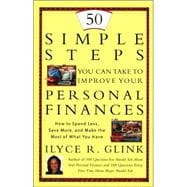
| Preface | xi | ||||
| Introduction | xiii | ||||
|
|||||
|
2 | (3) | |||
|
5 | (6) | |||
|
11 | (2) | |||
|
13 | (4) | |||
|
17 | (3) | |||
|
20 | (4) | |||
|
|||||
|
24 | (6) | |||
|
30 | (2) | |||
|
32 | (3) | |||
|
35 | (3) | |||
|
38 | (2) | |||
|
40 | (3) | |||
|
43 | (3) | |||
|
|||||
|
46 | (3) | |||
|
49 | (4) | |||
|
53 | (4) | |||
|
57 | (3) | |||
|
60 | (6) | |||
|
|||||
|
66 | (3) | |||
|
69 | (4) | |||
|
73 | (3) | |||
|
76 | (2) | |||
|
78 | (3) | |||
|
81 | (3) | |||
|
|||||
|
84 | (2) | |||
|
86 | (3) | |||
|
89 | (3) | |||
|
92 | (3) | |||
|
95 | (2) | |||
|
97 | (3) | |||
|
100 | (4) | |||
|
104 | (2) | |||
|
106 | (4) | |||
|
110 | (4) | |||
|
|||||
|
114 | (3) | |||
|
117 | (2) | |||
|
119 | (5) | |||
|
|||||
|
124 | (2) | |||
|
126 | (3) | |||
|
129 | (5) | |||
|
|||||
|
134 | (4) | |||
|
138 | (2) | |||
|
140 | (5) | |||
|
145 | (3) | |||
|
148 | (4) | |||
|
|||||
|
152 | (3) | |||
|
155 | (3) | |||
|
158 | (2) | |||
|
160 | (2) | |||
|
162 | (5) | |||
| Appendix 1 Ten Personal Finance Mistakes You Can't Afford to Make | 167 | (4) | |||
| Appendix 2 Where to Get Professional Help | 171 | (4) | |||
| A Guide to Commonly Used Financial Terms | 175 | (40) | |||
| Acknowledgments | 215 | (2) | |||
| Index | 217 |
The New copy of this book will include any supplemental materials advertised. Please check the title of the book to determine if it should include any access cards, study guides, lab manuals, CDs, etc.
The Used, Rental and eBook copies of this book are not guaranteed to include any supplemental materials. Typically, only the book itself is included. This is true even if the title states it includes any access cards, study guides, lab manuals, CDs, etc.
Excerpted from 50 Simple Steps You Can Take to Improve Your Personal Finances: How to Spend Less, Save More, and Make the Most of What You Have by Ilyce R. Glink
All rights reserved by the original copyright owners. Excerpts are provided for display purposes only and may not be reproduced, reprinted or distributed without the written permission of the publisher.